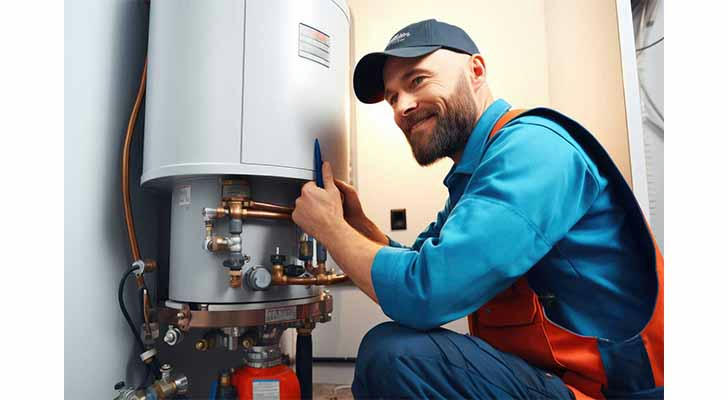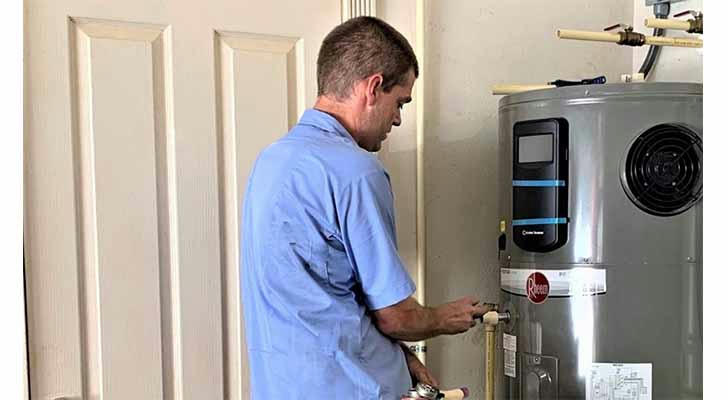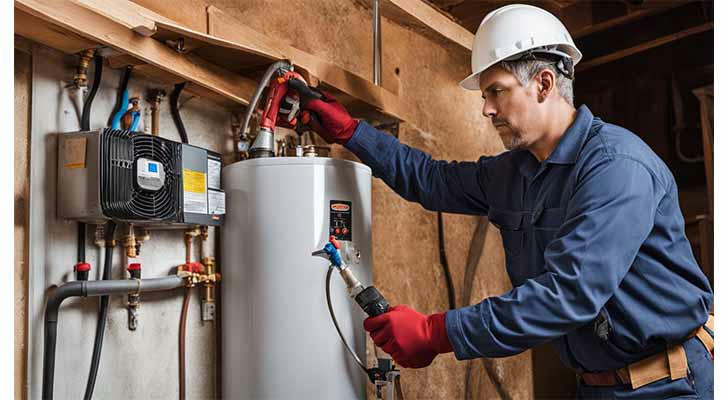Water Heater Installers in the U.S.: A Vital Role in Home Comfort
Water heaters are essential appliances in every home and business, providing hot water for daily activities such as bathing, cooking, cleaning, and heating. When these systems break down or need to be replaced, skilled water heater installers are called upon to ensure homes and businesses continue to enjoy the comfort and functionality of hot water. As a specialized trade, water heater installation is an in-demand profession with great potential for individuals interested in plumbing and HVAC systems. This article explores the role of a water heater installer, the skills required, and the growing opportunities in this field.

Role and Responsibilities of Water Heater Installers
Water heater installers are responsible for setting up, replacing, and repairing hot water systems in residential, commercial, and industrial buildings. Their tasks include:
Installation of New Water Heaters: The primary responsibility of water heater installers is to set up new systems. This involves choosing the right water heater based on the client’s needs (tank vs. tankless, electric vs. gas), placing it in an optimal location, and connecting it to the plumbing and electrical systems.
Removal and Replacement of Old Units: When an existing water heater reaches the end of its lifespan, installers safely remove the old system and replace it with a new one. This often involves draining the old tank, disconnecting power sources, and carefully installing the new unit.
Repairing Water Heaters: Sometimes, a malfunctioning water heater can be repaired rather than replaced. Installers diagnose the problem, whether it’s a faulty thermostat, a damaged heating element, or a clogged pipe, and then repair or replace the necessary parts.
Inspection and Maintenance: Regular inspections are essential for ensuring the longevity of a water heater. Installers may perform routine maintenance tasks such as checking the system for leaks, cleaning the tank, and inspecting components like the pressure relief valve and anode rod.
Upgrades and Efficiency Enhancements: With the growing demand for energy efficiency, installers may be tasked with upgrading older systems to more energy-efficient models, such as tankless water heaters or systems that integrate with solar power.

Essential Skills and Qualifications
Becoming a proficient water heater installer requires a combination of mechanical skills, technical knowledge, and customer service abilities. Some of the key skills and qualifications include:
Technical Expertise: Installers must understand how water heaters work, including the mechanics of tanks, heating elements, thermostats, gas burners, and plumbing connections. They need to know how to properly connect the water heater to electrical, gas, and plumbing systems.
Plumbing and Electrical Knowledge: Water heater installation involves both plumbing and electrical work. Installers must know how to handle water lines, drain systems, and electrical wiring, as well as adhere to local building codes and regulations.
Problem-Solving Skills: Water heater installers must be able to quickly identify and diagnose issues with malfunctioning units and determine the best course of action for repair or replacement.
Attention to Detail: Proper installation is critical to ensure that the water heater operates safely and efficiently. Installers must ensure that connections are secure, the system is properly tested, and safety features are functioning correctly.
Physical Strength and Dexterity: The installation process can involve lifting and maneuvering heavy equipment, working in cramped spaces, and performing tasks that require manual dexterity. Physical stamina is necessary to handle the demands of the job.
Customer Service Skills: Installers often work directly with clients, explaining the installation process, recommending suitable products, and providing maintenance tips. Good communication skills and professionalism are essential for customer satisfaction.
Education and Training
Becoming a water heater installer typically involves a combination of formal training and hands-on experience. The path to entering this field includes the following steps:
High School Education: A high school diploma or equivalent is typically required for those entering the field. Taking courses in math, science, and technical subjects can be beneficial for understanding the mechanical and electrical principles involved in the job.
Vocational Training or Apprenticeship: Many installers pursue formal training through vocational schools or community colleges that offer programs in plumbing, HVAC (heating, ventilation, and air conditioning), or electrical work. These programs provide foundational knowledge in plumbing systems, electrical wiring, and safe installation techniques.
On-the-Job Training: Most water heater installers gain experience through apprenticeships or entry-level positions. Working alongside experienced professionals, new installers learn practical skills, including how to install and repair different types of water heaters, troubleshoot issues, and comply with safety regulations.
Licensing and Certification: In many states and local jurisdictions, water heater installers are required to obtain a license to work legally. Licensing typically involves passing a written exam that covers plumbing and electrical systems, safety codes, and local regulations. Some installers may also choose to pursue certifications from organizations like the Plumbing-Heating-Cooling Contractors Association (PHCC) or the National Appliance Service Technician Certification (NASTeC) to further enhance their qualifications.

Job Outlook and Salary
The demand for water heater installers is directly tied to the need for residential and commercial plumbing services, which includes water heater repair, replacement, and new installations. According to the U.S. Bureau of Labor Statistics (BLS), employment for plumbers, pipefitters, and steamfitters, which includes water heater installers, is expected to grow by 5% from 2022 to 2032, which is about average for all occupations.
Salary: As of 2023, the median annual wage for plumbers, including those specializing in water heater installation, is approximately $59,000. However, wages can vary depending on experience, location, and whether the installer is self-employed or works for a company. Highly skilled installers or those with specialized certifications can earn over $80,000 annually. Additionally, installers may receive benefits such as health insurance, retirement plans, and paid time off, depending on their employer.
Challenges and Opportunities in the Industry
While the career offers many benefits, there are also challenges:
Physical Demands: Installing water heaters often requires lifting heavy equipment, working in tight spaces, and performing tasks that can be physically taxing. Installers must follow proper safety protocols to avoid injury.
Irregular Hours: Water heater issues can arise at any time, so installers may need to work evenings, weekends, or even during holidays to address urgent customer needs.
Weather Conditions: Installers working outdoors or in unconditioned spaces may be exposed to harsh weather conditions, which can make the job more challenging.
Despite these challenges, there are numerous opportunities in the water heater installation industry:
Increasing Demand for Energy Efficiency: As homeowners and businesses look for more energy-efficient solutions, the demand for modern, energy-efficient water heaters, such as tankless models, solar water heaters, and hybrid systems, is growing. Installers with experience in these systems are in high demand.
Green Energy Integration: The push for sustainable living and green energy solutions has increased the need for installers who can integrate water heaters with renewable energy sources, such as solar panels or geothermal systems.
Entrepreneurship: Many experienced water heater installers start their own businesses, offering installation, repair, and maintenance services to clients. This provides an opportunity for financial independence and growth within the industry.
Conclusion
Water heater installers play a vital role in maintaining the comfort and functionality of homes and businesses by ensuring that hot water systems are installed, maintained, and repaired properly. With the increasing demand for energy-efficient systems and the growth of green energy solutions, this field offers excellent career opportunities for those interested in plumbing and HVAC work.
With a combination of formal education, hands-on training, and certifications, water heater installers can enjoy a rewarding and stable career. By staying informed about the latest technologies and trends in energy-efficient heating solutions, installers can ensure long-term success in this essential and evolving trade.
